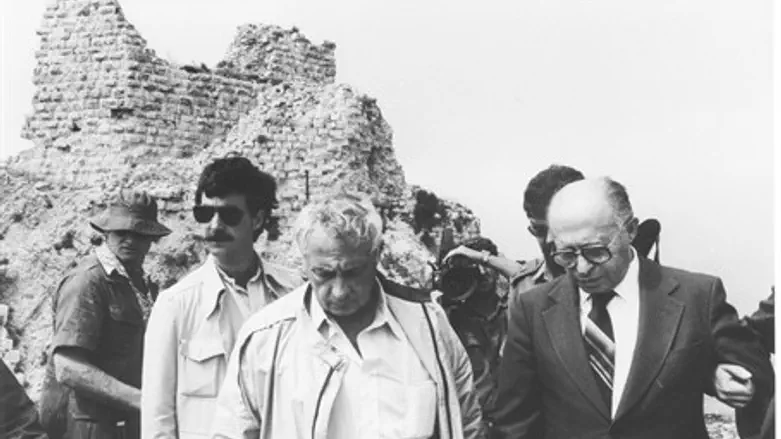
This week the IDF marked the 30-year anniversary of Operation Peace for Galilee with a ceremony featuring a speech to the troops by IDF Chief of Staff Lt.-Gen. Benny Gantz.
The operation, also known as the First Lebanon War, was authorized by then-Prime Minister Menachem Begin and launched on June 6, 1982, in response to Arab terrorists who had entrenched themselves in southern Lebanon.
The terrorists had created in effect a state within a state, and from there were sending out operatives to murder civilians across Israel's northern border.
Three days before the launch of Operation Peace for Galilee, Israeli Ambassador to Britain Shlomo Argov was shot and critically wounded. Although the assassination attempt took place in London, far from Israel's northern border, it had been carried out by Arab terrorists led by Abu Nidal.
In retaliation, Israel bombed Palestine Liberation Organization (PLO) terrorist training bases in southern Lebanon. The terrorists responded with massive rocket attacks against Israel's northern communities, resulting in many deaths and extensive property damage.
The First Lebanon War was launched with several goals:
to eject the PLO from Lebanon
to remove Syria's influence from the country
to strengthen the chances for a pro-Israeli Christian government led by Bashir Gemayel
Prime Minister Begin at the time said he hoped to sign a treaty with such a government, one that would bring Israel at least “forty years of peace.”
Unfortunately, it was not to be. Although the IDF managed to surround the PLO and elements of the Syrian army all the way up to Beirut, Israel was forced by international pressure to pull back. PLO terrorist chief Yasser Arafat and his operatives were allowed to relocate to Tripoli under international protection.
The Sabra and Shatilla massacre was blamed on Israel, who did not perpetrate it - but was accused of not realizing it would occur.
Israel, meanwhile, maintained a security buffer zone in southern Lebanon, but a civil war raged in the country until 1990, by which time Syria was in complete control of Lebanon.
Shi'ite militant groups waged war over Israel's presence in the security zone for years, until Israel's Prime Minister Ehud Barak withdrew IDF forces altogether in the year 2000.
The IDF withdrawal from the S. Lebanon security zone had a strong effect on the Palestinian populace. They took inspiration from the idea that Hizbullah "chased" the IDF out of S. Lebanon through terrorism. This was a good partof the motivation behind the Oslo War, also known as the Second Intifada, which began in 2000.
The move allowed the Hizbullah terrorist organization freedom to create the network of bunkers and weapons caches with which it carried out the Second Lebanon War against Israel in 2006.
Photos: Ministry of Defense- IDF Archive



